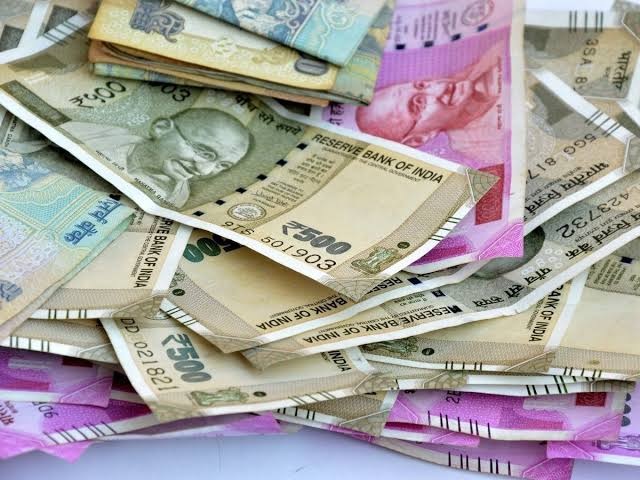7th Pay Commission latest news today: There is a rule of dearness allowance. When the government implemented the 7th Pay Commission in the year 2016, dearness allowance was reduced to zero at that time. According to the rules, as soon as the dearness allowance reaches 50 percent, it will be reduced to zero.
7th Pay Commission: Dearness allowance increases twice every year for central employees. But, how much this increase will be depends on the order of inflation. Many countries of the world are currently battling with inflation. In India too, the order of inflation seems to be moving upwards rapidly. The country’s Central Bank (RBI) has also expressed apprehensions that inflation is not under control.
In the coming days, inflation is expected to pick up. This is the reason why RBI is going to do its monetary policy ahead of time in November. Even though rising inflation is not good for the country. But, the allowance given to the central employees is sure to increase in proportion to the inflation. Well, even if we leave the inflation, dearness allowance for the employees is bringing salary increment in the coming time. Let’s understand how…
Next year will get a gift of 4 percent
Recently, there has been an increase of 4 percent in the Dearness Allowance (DA Hike) of central employees. This increase came into effect from July 2022. Now the next dearness allowance is to be implemented from January 2023. It is expected that the next increase will also be 4 percent. According to experts, the way the inflation situation is, it is clear that the dearness allowance will also increase by 4 percent in the coming days. Right now inflation is much lower in the country than in the world, but by January 2023, the picture may be different. In such a situation, if the dearness allowance increases by 4 percent, the dearness allowance will reach 42 percent.
Basic salary will increase as soon as there is 50% dearness allowance
There is a rule of dearness allowance. When the government implemented the 7th Pay Commission in the year 2016, dearness allowance was reduced to zero at that time. According to the rules, as soon as the dearness allowance reaches 50 percent, it will be reduced to zero and according to 50 percent, the money which is being received by the employees in the form of allowance will be added to the basic salary i.e.
minimum salary. Suppose the basic salary of an employee is Rs 18000, then he will get 50 percent DA of Rs 9000. But, if there is 50 percent DA, adding it to the basic salary, the dearness allowance will again be reduced to zero.
When is dearness allowance made zero?
Whenever the new pay scale is implemented, the DA received by the employees is added to the basic pay. Experts say that although the rules should add 100 percent DA to the employees in the basic salary, but this does not happen. Financial condition comes in the way. However, this was done in the year 2016. Before that in the year 2006, when the 6th pay scale came, at that time 187 percent DA was being received in the fifth pay scale till December. The full DA was merged with the basic pay. Hence the coefficient of 6th pay scale was 1.87. Then a new pay band and a new grade pay were also created. But, it took three years to deliver it.
increasing financial burden on the government
In the year 2006, at the time of the Sixth Pay Commission, the new pay scale was implemented from 1 January 2006, but its notification was issued on 24 March 2009. Due to this delay, DA arrears of 39 to 42 months were paid to the government in 3 installments in 3 financial years 2008-09, 2009-10 and 2010-11. A new pay scale was also created. In the fifth pay scale, in the pay scale of 8000-13500, 186 percent DA was Rs 14500 on 8000.
Therefore, after adding both, the total salary was 22 thousand 880. In the sixth pay scale, its equivalent pay scale was fixed at 15600 -39100 plus 5400 grade pay. In the sixth pay scale, this salary is 15600-5400 plus 21000 and on January 1, 2009, on adding 16 percent DA 2226, the total salary was fixed at Rs 23 thousand 226. The recommendations of the Fourth Pay Commission were implemented in 1986, the fifth in 1996, and the sixth in 2006. The recommendations of the Seventh Commission came into force in January 2016.
See how much salary will increase here

3% HRA will also increase
The next revision in house rent allowance will also be of 3%. HRA will be increased to 30 percent from the existing maximum rate of 27 percent. But, this will happen only when the Dearness allowance revise will cross 50%. According to the memorandum, if DA crosses 50%, HRA will become 30%, 20% and 10%. The category of House Rent Allowance (HRA) is according to the X, Y and Z class cities. Central employees who fall in the X category are getting 27 percent HRA, which will become 30% if there is 50% DA. At the same time, it will increase from 18 percent to 20 percent for Y class people. For Z class people, it will increase from 9 percent to 10 percent.














